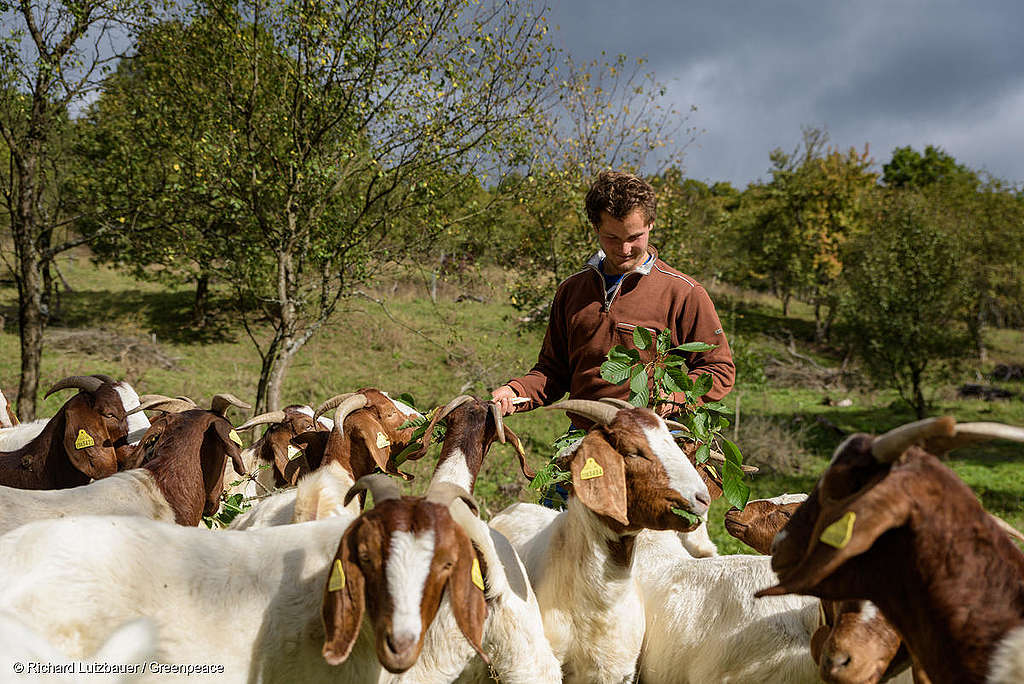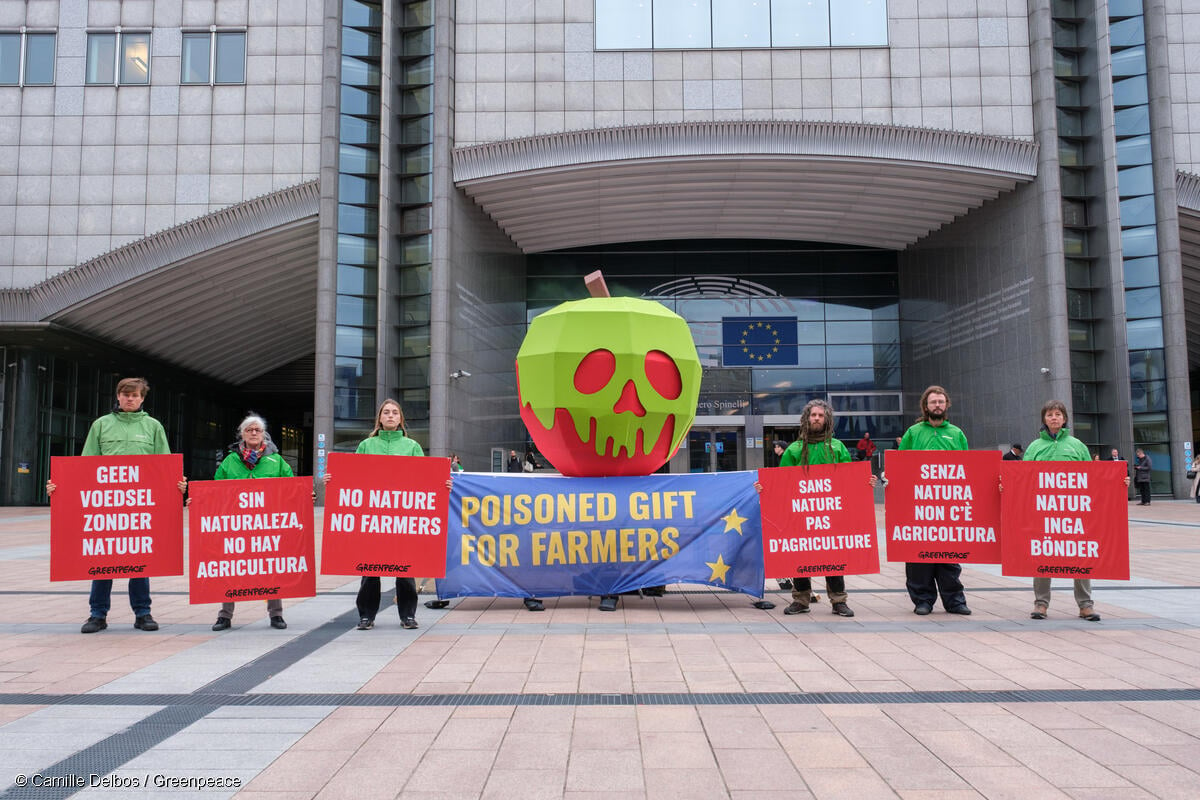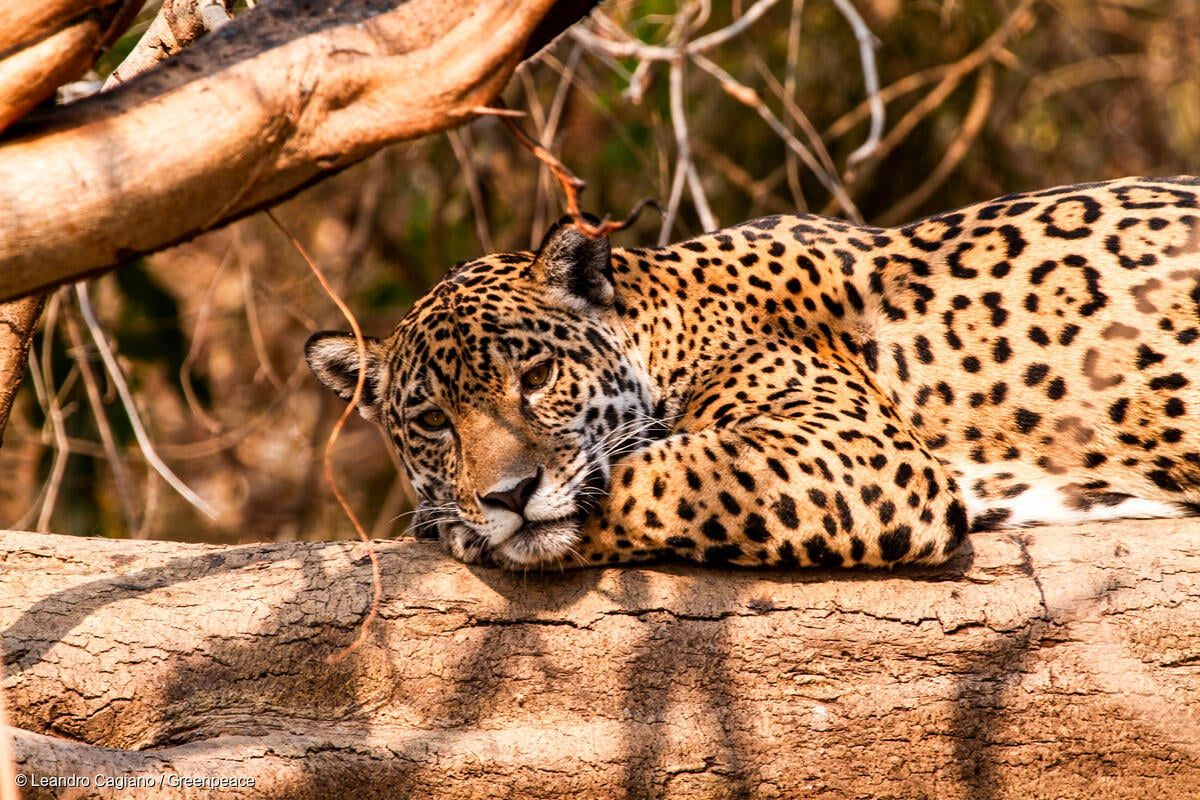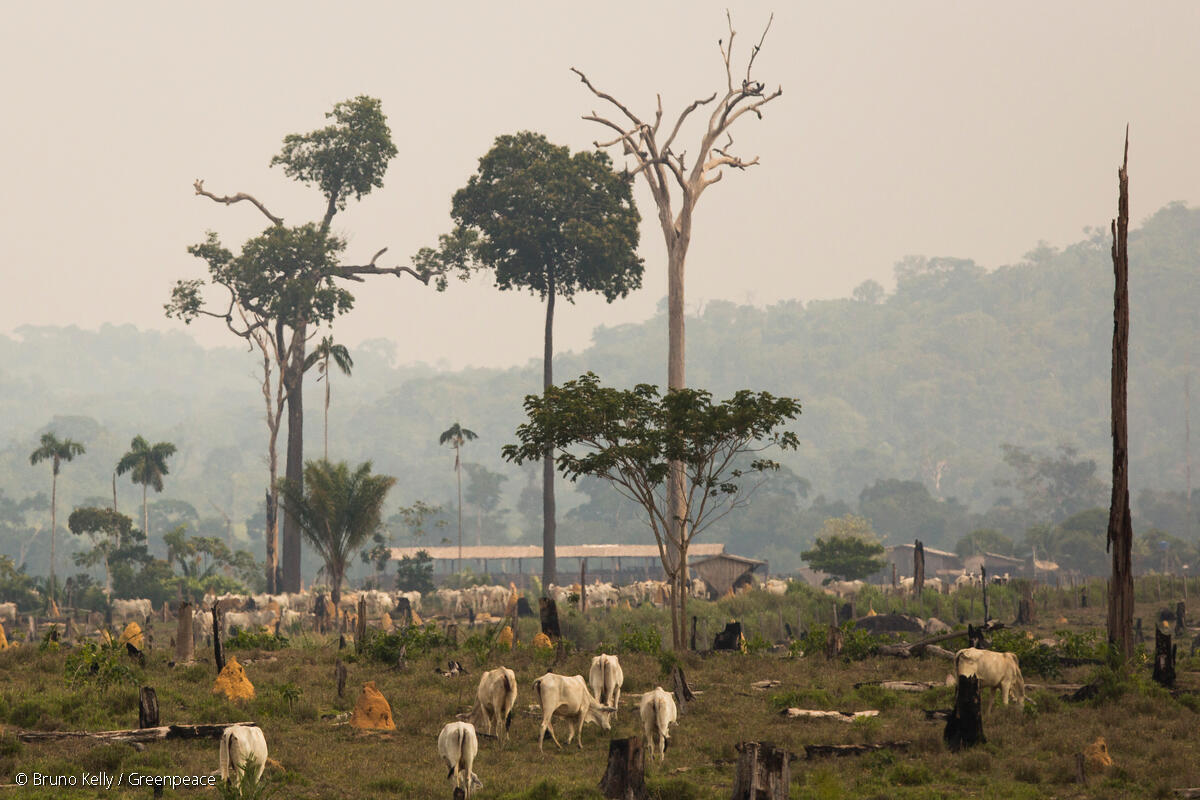New farm subsidy system needed for post-Covid-19 Europe
Brussels – The European Union must scrap its common agricultural policy (CAP) and start again to build a food and farming system that saves small-scale farmers and protects us from future pandemics, said Greenpeace. The new proposals should be part of an overhaul of the EU budget for 2021-2027, scheduled to be announced by the Commission later this month in response to the Covid-19 crisis. The CAP counts for more than a third of the current budget, which also finances the construction of fossil fuel infrastructure and other destructive activities.

Greenpeace is calling for an end to the CAP system that gives the top 1% of farmers a third of farming subsidies based on the large amounts of land they control, and heavily favours industrial animal farming. Scientists, agricultural experts and the European Court of Auditors , have also heavily criticised this system.
Marco Contiero, Greenpeace EU agriculture policy director, said: “The CAP now pushes a food system that hurts small-scale farmers, destroys nature and puts us at risk of more pandemics. To rise from the ashes of the coronavirus crisis, we must support farmers in producing healthy food in a way that respects nature – and stop just blindly bankrolling the biggest landowners. The EU must scrap the CAP and replace it with a system that protects small-scale farmers, provides healthy food for all and has a safe relationship with nature.”
Greenpeace is calling for the EU to support all farmers to farm ecologically, ensuring that they have secure livelihoods while producing affordable and healthy food. In recent years, 4.2 million farms, mostly small farms, have disappeared while the area of land farmed has stayed the same. There are no signs of this trend reversing.
The vast majority of the current CAP budget is distributed in direct payments to farmers based on the number of hectares of their farm, irrespective of environmental and social benefits the farms provide. Over 70% of the EU’s farmland is used to feed livestock, securing roughly a fifth of the EU’s total budget, at a time when scientists – including the Lancet and the IPCC – are warning that consumption and production of meat and dairy must drop drastically to protect human health, nature and a safe climate.
Risk of future pandemics
Industrial animal farming has a well-recognised role in the emergence and spread of viral infections similar to Covid-19. An estimated 73% of all emerging infectious diseases originate in animals, and livestock species transmit an extraordinary number of viruses, like coronaviruses and influenza viruses, to humans. Factory farming, especially of animals like poultry and pigs where animals are kept in very high numbers and close contact, and traded across big distances, is likely to increase disease transmission.
Animal farming is also the main driver of global forest destruction, and researchers estimate 31% of outbreaks of emerging diseases are linked to land use change – including HIV, Ebola and Zika, connected to human encroachment on tropical rainforests.
Contacts:
Marco Contiero – Greenpeace EU agriculture policy director: +32 (0)47 777 7034, [email protected]
Greenpeace EU press desk: +32 (0)2 274 1911, [email protected]
For breaking news and comment on EU affairs: www.twitter.com/GreenpeaceEU
Greenpeace is an independent global campaigning organisation that acts to change attitudes and behaviour, to protect and conserve the environment and to promote peace. We do not accept donations from governments, the EU, businesses or political parties. We have over three million supporters, and offices in more than 55 countries.
EU Transparency Register: 9832909575-41



